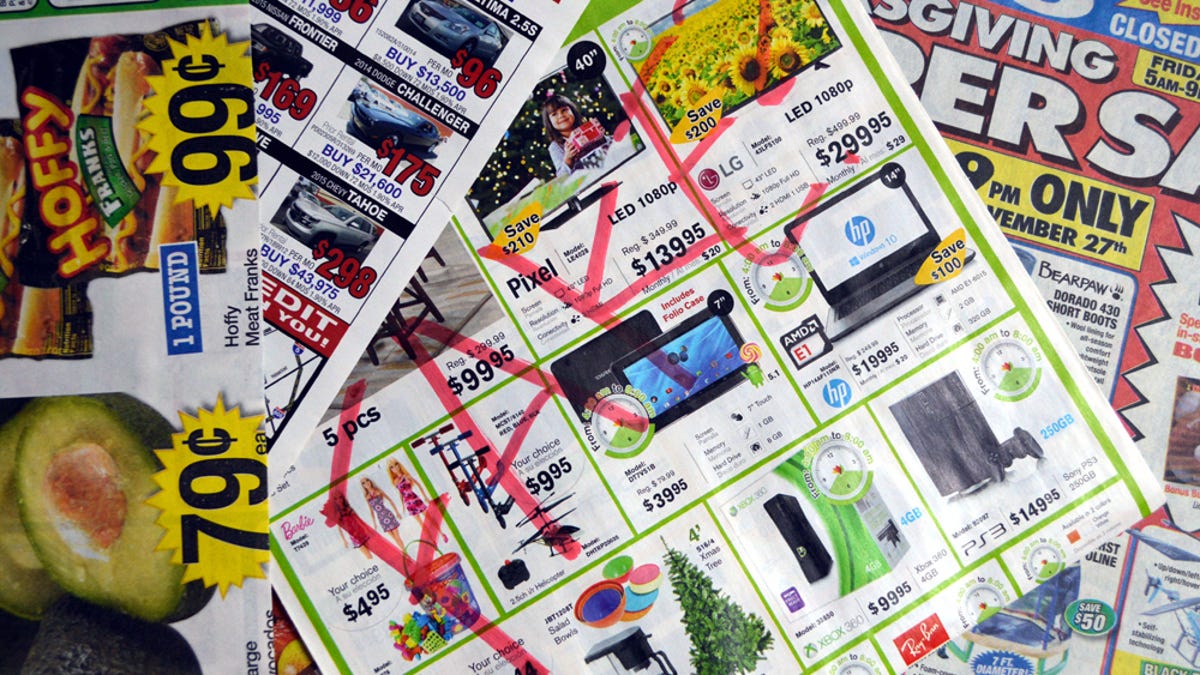5 signs that awesome coupon is probably fake
No. 1: It's way too awesome to be real.

Is Target offering a fabulous coupon that gives you 50 percent off your entire purchase? No, of course it isn't. That coupon is 100 percent fake, but this hasn't stopped thousands of people from sharing it on Facebook.
There are a couple of reasons to care about fake coupons. First, the linked coupons you see on Facebook Timelines and Twitter feeds aren't coupons -- not even fake ones. They're just bait images that, when clicked on, will either (a) install malware on your device, (b) spam all of your friends' pages with fake coupon ads, (c) ask you to fill out at least 352 surveys and sign up for 16 services you don't want in order to finally get the coupon (which you will never get), or (d) all of the above.
Second, if you actually do end up with a fake coupon in hand, you take it to a store, and the store accepts it as real, the store loses money. This doesn't make a huge difference in your life (except for the sweet deal you just got thanks to that cashier's blissful ignorance), but if enough fake coupons are accepted as real, the store will eventually decide that it makes more sense to just stop accepting coupons altogether. So, no more sweet deals, real or fake, for you.
So, lose-lose situation either way. If you're not sure if that coupon you see on your friend's wall is fake, here are some signs that it may be:
Your Facebook friend linked to it, and the link doesn't go to the manufacturer's site
Most of the fake coupons you're going to see this holiday season will come from a source close to your heart -- one of your Facebook friends! If you see a fabulous Walmart deal pop up in your friend's feed, roll over it right quick -- where does the link go (you should be able to see the full URL in the lower corner of your browser). Does it lead to Walmart.com or a reputable coupon-clipping site like Coupon Cabin or Coupons.com? Or does it lead to free-holiday-walmart-target-coupons-for-real.biz?
If it's the latter (or anything like the latter), don't click on it.
It's on the list
The Coupon Information Center keeps a running list of fake coupons on its Coupon Alerts page (US only). If the coupon you're looking at is on this list, it's definitely fake. But if it's not on this list, it could still be fake -- do a quick Google search to see if it comes up on any fraud alert sites or in any news stories. For example, all you have to do is Google "Target coupon" and a bunch of news stories will pop up about how that 50 percent off Target coupon is fake.
It looks fake
Look at the coupon. Has it been altered in any way? The most common alterations will be the percentage or amount of money off (for example, a $10 off coupon might be changed to a $40 off coupon) or the expiration date. Does the coupon look like a real coupon? Is there a bar code? Is the expiration date an actual date? Big box stores like Walmart and Target can afford to make decent-looking coupons, so if something looks off...it probably is.
It's too good to be true
Does the coupon seem too good to be true? Stores and manufacturers like to make money -- and if they're doing some sort of crazy, too-good-to-be-true sale, you can bet they're going to make you work for it. (That's why people stand outside in the pouring rain for three days to shop Black Friday sales.) If the coupon is for some insane discount (like taking off more money than a product is actually worth), or a free item without requiring a purchase, it is almost certainly fake.
You have to pay for it
This one is tricky, because buying coupons isn't always a scam. In fact, I occasionally purchase real, non-scam coupons from eBay, and many couponers buy physical coupon lots or inserts to save money. It's okay to pay money for coupons, but you do need to verify that they're real coupons before you make the purchase. I rely on eBay sellers' ratings and my knowledge of the coupon (for example, if I know Victoria's Secret is giving out $10 coupons, I'll buy a few for $1 each. But I'll stay away from a $50 coupon, because as far as I know, that's not a thing that Victoria's Secret is doing right now).
But when I say "pay for it," I'm not talking about buying physical coupons -- I'm talking about "paying" for a coupon by taking a survey (which ends up turning into 28 surveys), signing up for a product (unless you're signing up for the store's email list, that coupon is fake), or handing over your credit card information for any reason. No real business is going to ask you to sign up for two completely unrelated auto insurance quotes and a watch-of-the-month club just to get a coupon.

